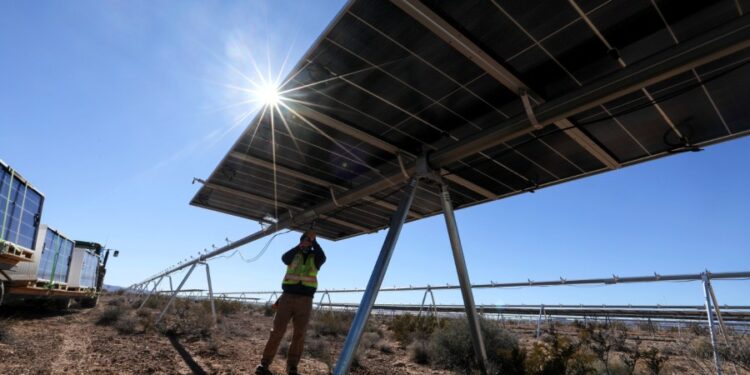
The Biden administration will double tariffs on certain solar panel components that are made in China, it announced Wednesday.
Starting in January, imports of Chinese solar wafers and polysilicon will carry a 50 percent tariff, up from the current levy of 25 percent. Polysilicon is a type of silicon that is used to make solar panels, while wafers are the semiconductors used in the panels.
In addition, the administration said it would increase tariffs on certain Chinese products made out of the mineral tungsten, which has applications in the aerospace, automotive, defense, medical, and oil and gas industries.
In a written statement, U.S. Trade Representative Katherine Tai said that the increased tariffs would both hurt China and support U.S. investments.
“The tariff increases announced today will further blunt the harmful policies and practices by the People’s Republic of China,” she said.
“These actions will complement the domestic investments made under the Biden-Harris Administration to promote a clean energy economy, while increasing the resilience of critical supply chains,” Tai added.
The Biden administration has previously taken other steps to increase tariffs on Chinese solar and other equipment — arguing that it’s doing so in support of domestic manufacturing.
More broadly, the administration has sought to make the case that climate action and job growth can be compatible, and has sought to encourage domestic manufacturing of climate-friendly energy sources.
In addition, the administration has found that forced labor is used to produce Chinese polysilicon.
A group representing U.S. solar manufacturing companies praised the latest move from the administration, but also called for further action.
“It is an important precedent that a 50% tariff will soon cover the whole solar module supply chain in China,” said Mike Carr, Executive Director of the Solar Energy Manufacturers for America (SEMA) coalition, in a written statement.
“But we must go a step further to expand this approach and address the significant trade distortion that exists outside of China from Chinese-owned solar companies to fundamentally help put U.S. workers on a more level playing field,” he said.







